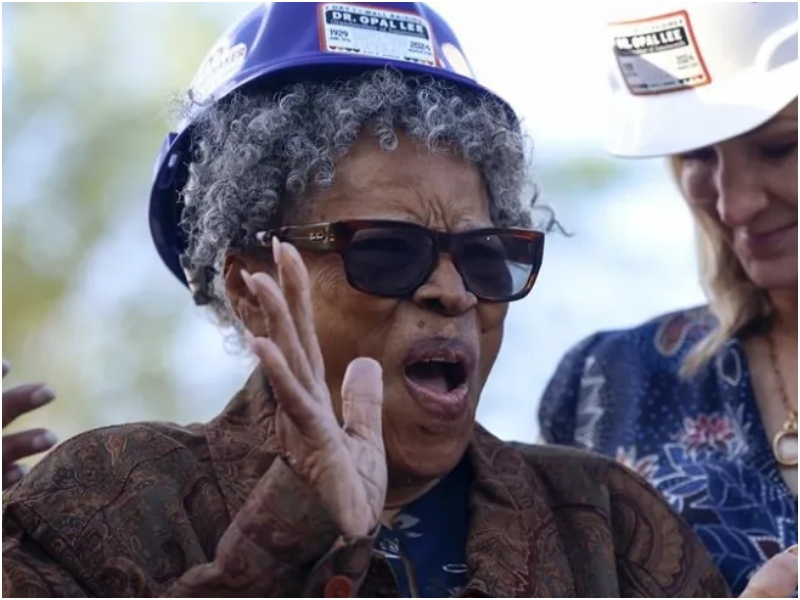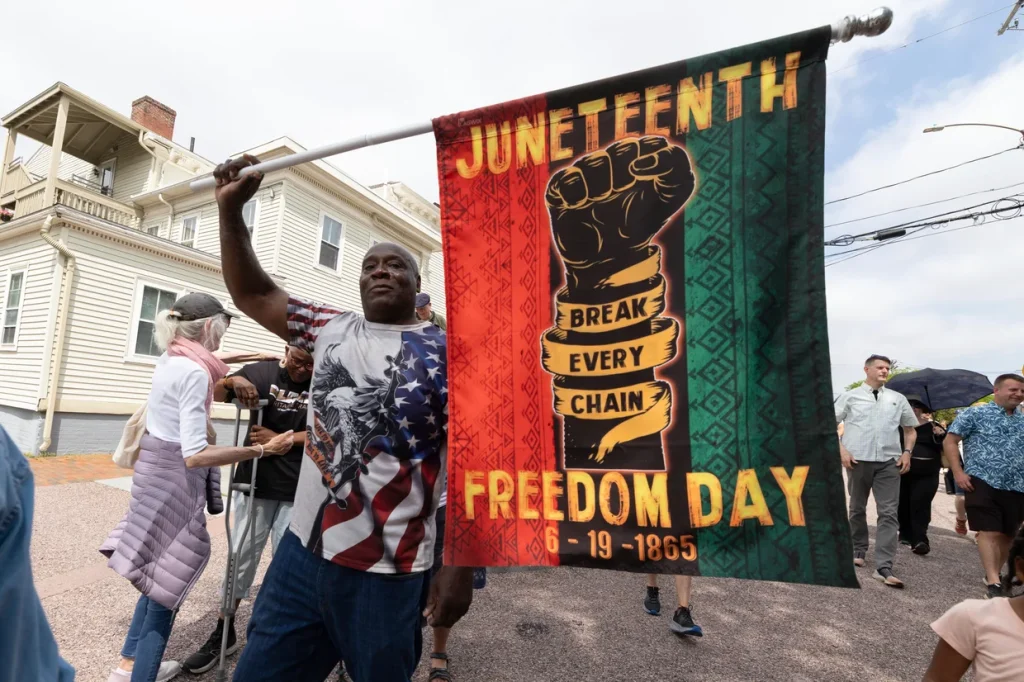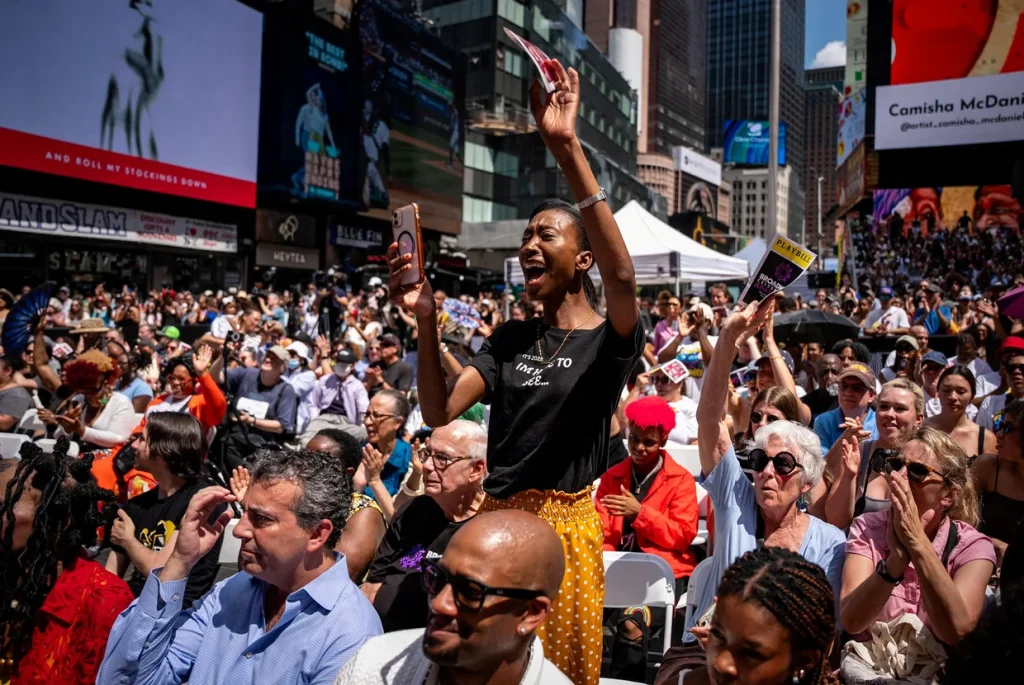Say her name: Opal Lee! At 97 years old, she is not just the Grandmother of Juneteenth—she is the living embodiment of Black perseverance, historical truth-telling, and the ongoing fight for justice in America.
Thanks to Lee’s unwavering determination, Juneteenth—a holiday long celebrated in Black communities—is now recognized as a federal holiday. And as we mark the fifth official Juneteenth on the national calendar, we are reminded that it took the tireless footsteps of a then-89-year-old woman to lead this nation into finally acknowledging one of its most important, and most overdue, chapters.
From Footsteps to Federal Law

In 2016, Lee began walking 2.5 miles every year, symbolizing the 2.5 years it took for freedom to reach the last enslaved people in Galveston, Texas after the Emancipation Proclamation was signed in 1863. That delayed freedom—announced on June 19, 1865—is what Juneteenth commemorates.
Lee’s symbolic journey from Fort Worth to Washington, D.C., captured the nation’s attention. And in 2021, her dream became reality when President Joe Biden signed legislation declaring Juneteenth a federal holiday.
Why Juneteenth Still Matters

Juneteenth is more than a celebration—it is a reckoning. It teaches us that freedom delayed is freedom denied, and that information withheld can be as oppressive as chains.
As attorney Stephanie R. Lindsey powerfully stated in an Instagram video to mark this year’s celebration, “Sharing knowledge is just as important as having knowledge.”
“Can you imagine being a slave under horrific conditions and learning that you are free—but knowing there are others just states away who haven’t heard yet?” Lindsey asked. “Shoot, we still got some people that don’t realize they’re free.”
The story of Juneteenth forces us to confront how information—and misinformation—has always been used to control Black bodies and minds. It also reminds us that emancipation is not a moment, but a movement—one that requires ongoing vigilance, education, and truth-telling.
Facing the Truth, Together

Celebrating Juneteenth also challenges the sanitized versions of American history taught in many classrooms. It forces a confrontation between national ideals and historical realities.
For example, while George Washington is remembered as the “Father of Our Country,” the story of Ona Marie Judge—an enslaved woman who escaped his household—offers a more complete narrative. Her pursuit of freedom and Washington’s relentless efforts to recapture her are not an isolated story. It’s a thread in the larger tapestry of America’s foundational contradiction: a nation built on liberty that denied it to millions.
One History, Interwoven

This Juneteenth, we remember that Black and white histories are not separate. They are intertwined, overlapping in families, labor, politics, and pain. That’s why efforts to tell these stories—whether through new tours, documentaries, or grassroots advocacy—are so essential.
As a CBS News article on Juneteenth noted, the push to make the holiday federal gained renewed urgency in 2020 following the murders of George Floyd and Breonna Taylor, amplifying calls for a deeper reckoning with systemic racism. But those calls didn’t begin there. Communities had been celebrating Juneteenth for more than a century, with renewed advocacy in the wake of events like the 1991 beating of Rodney King.
Honoring a Living Legend
Opal Lee is still with us. Still showing up. Still teaching. Still walking—so we don’t forget. And that’s the power of Black women’s persistence. That’s the legacy of Juneteenth.
We don’t just celebrate freedom.
We honor the ones who fought for it.
We share the truths that were hidden.
And we pass on the knowledge that liberates.
